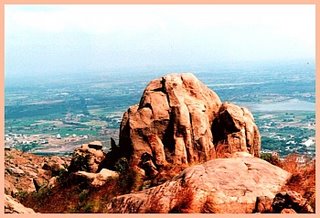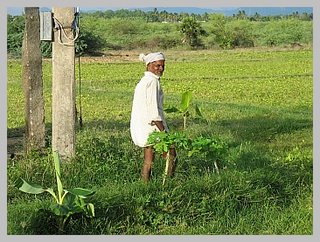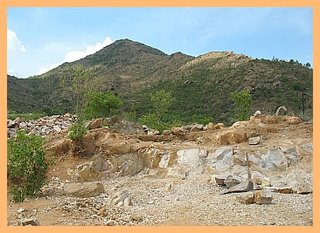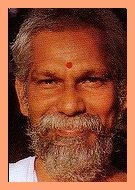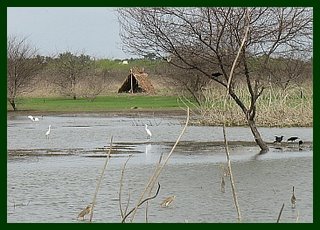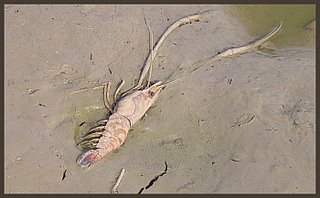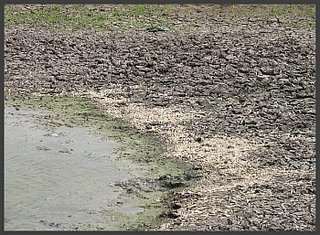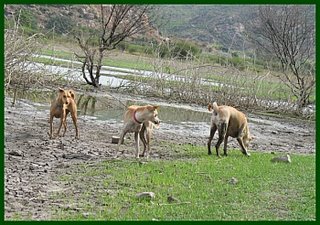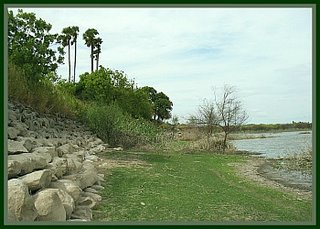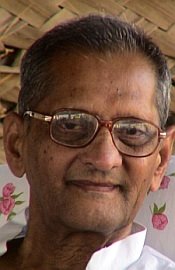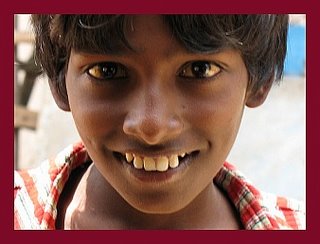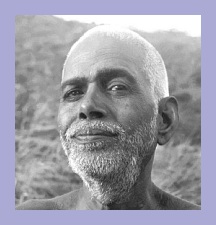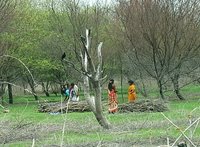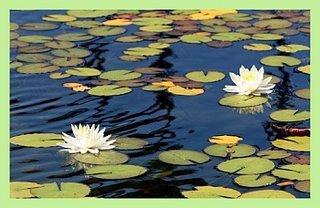Lots of people are getting upset about the increasing development and urbanisation of the area surrounding Arunachala. I don't worry about it that much and I'll tell you why.
A couple of years ago, one New Year's Day, I climbed to the top of Arunachala for the first and I'm sure the last time. I am a little plumpy and also made the mistake of believing all those people who say, 'It's easy, no problem!' Well for me it was a mighty problem as I went up wearing a sari, flip-flip shoes and with only a small amount of water. By the time I got halfway up the Hill I was reduced to acting like a beggar outside Egmore Railway station; but instead of piteously rubbing my stomach and asking for 'Paisa', my plaintive cry was, 'Water, Water!' Happily, I met with help and was able to complete my ascension and successfully make it to the top of Arunachala.
At that time Hill Swami Narayana (check out blog entry August 7th) was living on top of the Hill, in something that could be termed Tent City. Although he originally lived as a recluse on the hill-top, over the years he had accumulated a large coterie of followers including a group of young lads who would daily go up and down the Hill with food and water for Swami and the Tent-City community. Mercifully the lads refilled my plastic water bottle and gave me a nice rice prasad.
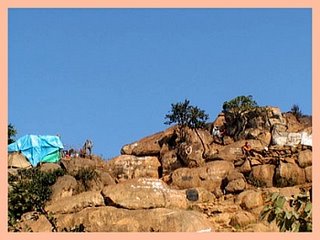
After I had recovered from the ordeal of my Hill ascension, I sat on the edge of Arunachala looking down at Tiruvannamalai and surroundings. The thought that came to mind was the movie 'The Time Machine'; the old one with Rod Taylor playing the role of the 'Time Traveller'. In the movie the 'Time Traveller' is sitting on his machine watching the passing of time. He sees the house around him disappear and the landscape change. Although, in the real world aeons of time pass and the very geological formation of the earth changes, for the 'Time Traveller' on his time machine, just a few moments pass.
That day on top of Arunachala, I thought of that movie and tried to see it from Arunachala's perspective. One moment to be surrounded by forests and then suddenly the forests are denuded, buildings come up, crumble, are demolished, and then replaced, and the scenario inexorably repeats, again and again.
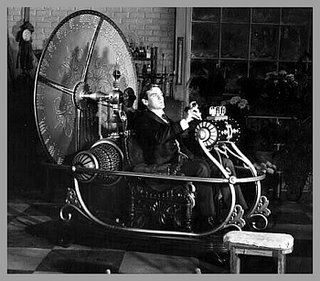
Not just one lifetime but aeons upon aeons have passed whilst Arunachala has stood as silent Sentinel to the World. I wondered at our vanity to think we have the power to actually DO anything that could in anyway limit, circumscribe or diminish the impeccability and Glory of Arunachala.
That day, I felt really good to finally get it that Arunachala is in total control and has everything well taken care of. WE ARE LOVED.
